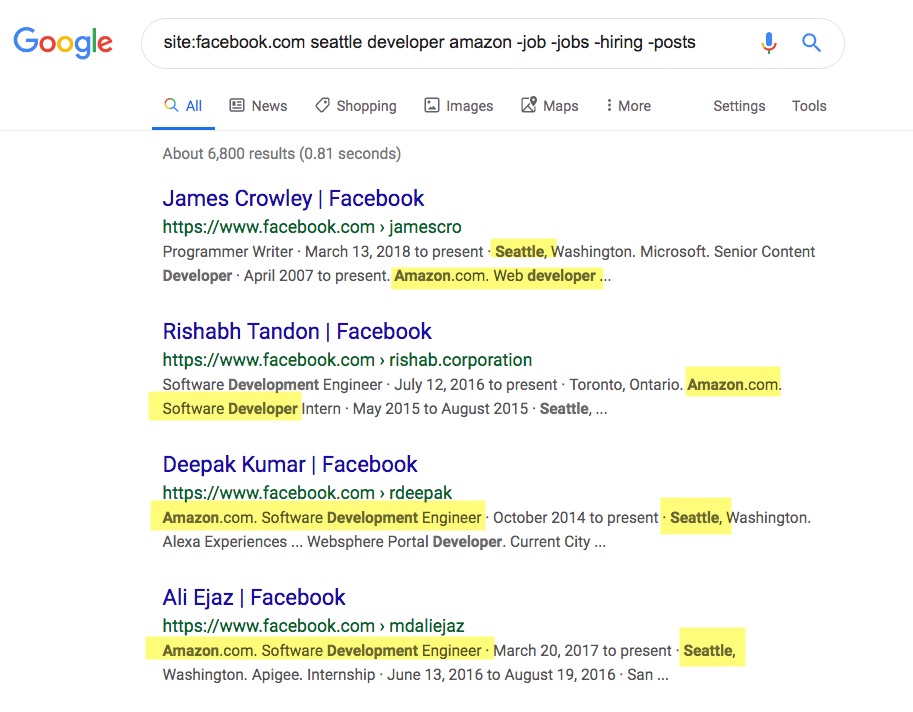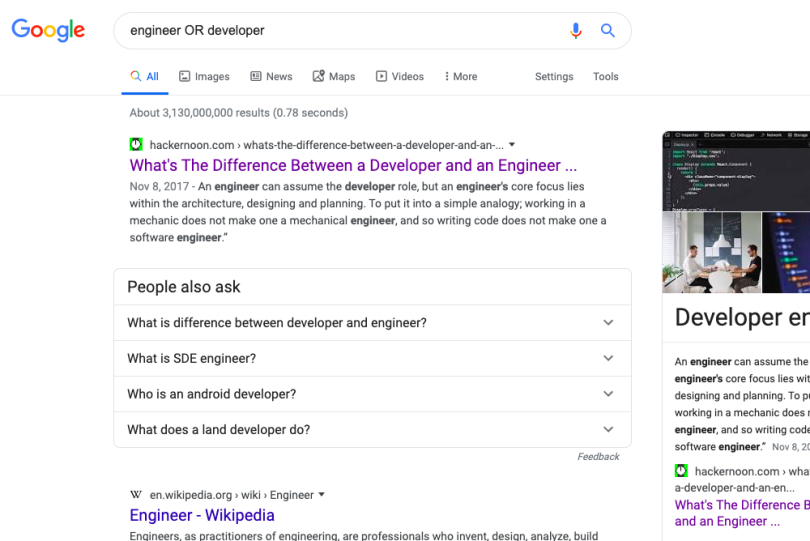
They can make your life painless, and your search exponentially more effective. And that’s exactly where Boolean search strings step in!įor a recruiter, Boolean search strings are a godsend. But here’s the thing – Google search holds such power to offer highly customized results should you want it.

Enter a keyword or a key phrase and hit search. Most of us barely scratch the surface when it comes to the Google search engine. An alarming insight from our brand new report, 2021 State Of Developer Recruitment, shows that 37% of recruiters agree sourcing is a big challenge, post-pandemic. This enables you to search for the root of a word and obtain results containing several variants.Įxample: Java* will return results for "Java" and words like "Javascript.Blindly sinking resources into hiring drives with recruiters scouring the Internet for hours looking for suitable job profiles will not cut it anymore. Use * to represent any number of characters. Use the table below for an example of a common Boolean wildcard search. Use parentheses to group clauses to form sub queries.Įxample: (MIT OR Harvard) AND "computer science" will return results that have "MIT" or "Harvard" and "computer science."īoolean wildcard searches enable you to search for variations on the modified text, allowing results for plurals or different word forms. Not using "" around a phrase will mean that each word is treated separately, usually with an assumed AND in between each one.Įxample: senior engineer will return any results that have the words "senior" and "engineer" attached to them, while "senior engineer" will return only results that have the words "senior engineer" combined as a phrase. Quotation marks are used to capture a phrase that is to be kept intact in the exact word order stated. Use the table below for examples of common Boolean modifiers. If there are closely related terms that mean very different things, then using NOT is extremely helpful.Įxample: architect NOT "software architect" will return results that contain the word "architect," but leave out any results that use the phrase "software architect."īoolean modifiers enable you to keep phrases intact or to perform sub queries within your main query. Using the OR command allows you to create a list of possibilities for which only one match is important.Įxample: trainer OR instructor OR teacher will return results that contain one or more of the stated words that are synonymous. In other words, it expands and broadens your search so that you get more results. OR provides options in a search so that the results will include either or both terms. Results will not include resumes, notes, or scorecards that have either "engineer" or "senior developer." This should help when you're trying to find candidates who possess a certain set of skills and experience.Įxample: engineer AND "senior developer" will return results that include both the word "engineer" and the phrase "senior developer." All search results will include both. Boolean operatorĪND limits your search because you're requiring that any search term following AND must appear in the results.

Use the table below for examples of common Boolean operators. Boolean operatorsīoolean operators connect your search terms. For more information on smart quotes, click here.


If you're using quotation marks in your search, type them in or copy without formatting using a notepad program. Note: If you are copying and pasting your Boolean search string from MS Word or other programs, quotation marks will be treated as "smart quotes" which are not compatible with Boolean search.


 0 kommentar(er)
0 kommentar(er)
